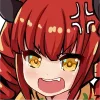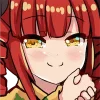| Author: Sasaki Ichiro | Original Source: Syosetu |
| Translator: Mab | English Source: Re:Library |
| Editor(s): Silva | |
Ashimi Asteri is an elf.
Well, it is actually the other races, mainly the beans (humans), who call his people ‘Elves,’ while the elves identify themselves with the word ‘Humans’ in Elvish. Ironically, those who identify themselves as ‘Humans’ in this world are the short-lived and barbaric beans, so the elves find themselves in a humiliating situation where they have to accept the designation of ‘Elves.’
For Ashimi Asteri, who is still just 183 years old and the second youngest in the village, this reality is both incomprehensible and intolerable. Yet, the majority of adults in the village, including the village chief bearing the title of “Fairy King,” seem to accept it with tranquility and resignation—the rise and fall of the human world hold little significance for these long-lived beings, as it seems. They live in a secluded corner of this continent where the World Tree has long withered.
Such stagnant lifestyles of his fellow beings are something that the young Ashimi cannot come to terms with.
How did he, of all people, end up in the human world, living among beans?
Initially, Ashimi felt he was being manipulated by the Fairy King, Elder Uranus Kiohn, but upon reflection, he suspected it might just be a convenient way to exile him…. However, it turns out that was clearly an unfounded suspicion. In fact, as trade and negotiations with humans became more active, changes began to occur among the villagers. Whenever he was scheduled to go to the human town to wholesale wines and such from the village, they would always pile on requests like “bring back that thing” or “find out about the latest craze,” indicating a clear shift in their attitudes.
In essence, they were using him as a messenger boy, but it seems there are others who are more nimble and free-spirited, venturing into the city for sightseeing and such. Apparently, the so-called ‘new breeze’ that Elder Uranus Kiohn spoke of is indeed blowing. While Ashimi understood he should consider it a blessing…
“…why did I have to come all the way to the remote other end of the continent?”
Looking out over the artificial human city, which was lacking in natural spirit energy (although it boasted one of the largest cities on the continent, it seemed nothing more than a dry land with weak spirit energy), Ashimi muttered to himself again in Elvish.
If it were Pryui Shiel with her excessive love for humans, it might make sense, but in the first place, there was neither obligation nor reason for Ashimi to leave the village and come this far. However, due to circumstances and a slight curiosity—concern for the fate of Jill, who could be considered a sibling to their tribe despite being human—he suddenly found himself stuck here along with Pryui.
Before setting out on the journey, Ashimi had sought the opinion of the village elder and other prominent figures. However, he was sent off with such surprising ease and a simple “Sure, go ahead” from everyone, giving him a sneaking suspicion that, perhaps, he really was being pawned off.
By the way, it seems that regular trade between the village and the city of Consul is handled by the village’s youths on rotation—apparently, at first, the village elder was eager to take on the task personally, but it seems the whole village collectively put a stop to that idea—so Ashimi’s absent didn’t affect that.
With half of the reason for staying in this place, Jill, being absent due to guild work and his protege Pryui being completely absorbed in teaching the basics of spirit magic to some kid named Luke, Ashimi had been particularly grumpy lately. There was no one around to vent to, making him feel even more uneasy.
On top of that, the northern territories of this continent have a history of excluding non-human races, so compared to other regions, there is an overwhelming tangible and intangible pressure on the elves—ranging from curious glances to being outright spat at in the streets. Additionally, witnessing the discrimination against the beastkin (most of whom are treated as slaves with magic collars around their necks) only fueled Ashimi’s anger further.
“Ugh, it’s sickening out here. I’ll just head back to the mansion.”
Having spoken those words, Ashimi realized with a bitter expression that the mansion he referred to—the Letindüte III where he and Pryui were currently lodging—had unconsciously become ‘home’ to him.
“…no, I’m not accommodating myself there. It’s just that Pryui is there, and the mansion itself, along with the spirits residing there, is just much more lively compared to anywhere in this city, and the people are…well, they’re marginally better than the beans of this city. —Yeah, it’s just an emergency refuge.”
Muttering excuses to no one in particular, Ashimi became even more disgruntled and turned his steps in the opposite direction of Letindute.
“Perhaps I’ll take a stroll in the forest outside the city for a change of scenery. Spending a couple of days camping there wouldn’t hurt either.”
For a moment, Ashimi considered whether it would be better to inform Pryui in advance to avoid causing worry but he quickly concluded that it wasn’t necessary and continued towards the outskirts of the city.
Shortly before reaching the gate that separates the city’s interior from the suburbs, Ashimi’s ears caught the clear soprano voice of a young girl singing. Although he couldn’t quite make out the lyrics, it was evident that the song was sung with considerable skill, quite impressive for a human.
He could have just continued on his way, but for some reason, the melody, though unfamiliar, felt oddly nostalgic. Intrigued, Ashimi decided to follow the direction from which the singing was coming.
The wall and gate, while originally constructed for convenience during the capital’s development phase, had since become a symbolic barrier due to the chaotic urban renovations. In fact, the guards stationed at the gate appeared to be retired soldiers, and the stone wall, barely taller than an adult’s shoulder, showed signs of neglect with no apparent repairs. Beyond it lay a sprawling area filled with shabby huts, home to squatters and refugees—a so-called slum area.
Near the gate, by a wall that seemed easily scalable with both hands, stood a girl clad in ragged, dirt-stained clothes and barefoot—a clear indication of her status as a beggar—singing earnestly. At her feet lay a wooden bowl containing just a scant few copper coins.
Understanding the situation, Ashimi immediately regretted coming this far.
Standing there was a girl of about ten years old, her complexion marred by neglect despite her well-structured features. Her unkempt, golden hair was tangled with dirt and grime, indicating a lack of bathing or even basic hygiene. The mere proximity to her suggested a noticeable odor emanating from her dirty, malnourished frame.
“Beans at their finest… Truly incomprehensible. Why don’t they lend a helping hand to their own kind?”
With a disdainful click of the tongue, Ashimi was about to turn on his heel when a passerby tossed a partially eaten bone with a bit of meat left in it into the bowl.
“—Hey!”
“Thank you, sir.”
Feeling compelled to say something, Ashimi was about to voice his disapproval, but before he could, the girl, who had stopped singing, bowed deeply to the departing passerby. Then, seeing her happily gnawing on the bone, he found himself unable to utter another word.
Feeling a sense of discomfort, Ashimi was about to leave the scene when he suddenly noticed something peculiar about the girl deeply engrossed in licking the bone. Her ears, peeking out from her disheveled hair, were noticeably longer and more pointed than those of humans, prompting him to squint in disbelief.
Although resembling elves in form, she appeared somewhat incomplete and unbalanced compared to himself.
Just as he was pondering the improbability of her being of the same kind while consuming meat, he realized her true identity.
“I see, she’s a half-elf,” he muttered to himself, the first time seeing one in the flesh.
Sensing his scrutinizing gaze, the girl, having finished off the last bits of flesh on the bone, turned towards Ashimi with a satisfied smile.
“Hello, Mr. Elf. Would you kindly grace me with your mercy by listening to a song?” she asked with unabashed candidness.
Ashimi’s brow furrowed at the shameless begging.
Driven by his stirred emotions, he questioned in a brusque tone, “If you’re of elven descent, why do you stoop to such disgraceful and pitiful behavior?!”
“I have no choice but to do this to survive,” she said with a smile, her tone devoid of any pretense, leaving Ashimi momentarily speechless. Gathering his composure, he pressed on with his questioning.
“Is relying on human charity and clinging to humans your way of life?!”
“Yes, it is. Those of us with non-human blood cannot secure decent jobs in this city. So, I have no choice but to do this to survive.”
Still smiling, the girl tilted her head slightly.
“My father was an elf adventurer who roamed as a wanderer, but he abandoned me, a child born between him and a human, without ever acknowledging me. Earlier, you asked in Elvish ‘why don’t humans lend a helping hand to their own kind,’ but aren’t half-breeds like me rejected even by elves…no?”
“…”
Ashimi found himself unable to respond. While there had been no cases of half-elves being born in his village, it was a known fact that most elves harbored disdain for half-elves. Although, this was largely due to the elves’ general dislike of humans…
She seemed to interpret Ashimi’s silence as confirmation. With a serene smile, she continued, “My mother, abandoned by my father, passed away brokenhearted. That’s why I have no choice but to cling to others to survive.”
Speaking with no hint of hesitation, she resumed singing, her voice echoing down the street.
“…”
Whether it was Ashimi’s imagination or not, the melody sounded somehow melancholic. In silence, he stood there as the innocent girl’s song drifted away into the distance.


























































